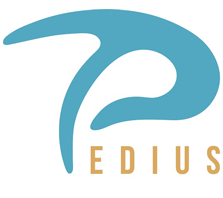Often the conversation about work inclusion of people with disabilities is discussed in great detail, yet, companies are still doing little action in practice.
In the UN Convention on the Rights of Persons with Disabilities, work inclusion is strongly encouraged as it represents a right and a duty, as well as, a key moment in the life of a disabled individual. Specifically, in Article 27, the measures undertaken by the state or country to ensure an accessible and inclusive environment are described in detail, including: the prohibition of all forms of discriminations; the guarantee of equal employment and remuneration opportunities; cues to vocational training; the promotion of entrepreneurship, recruitment in the public and private sectors, and career advancement.
Appreciating diversity, optimizing talent and increasing work inclusion can bring tangible benefits to the company with regards to innovation and productivity.
In the UN Convention on the Rights of Persons with Disabilities, work inclusion is strongly encouraged as it represents a right and a duty, as well as, a key moment in the life of a disabled individual. Specifically, in Article 27, the measures undertaken by the state or country to ensure an accessible and inclusive environment are described in detail, including: the prohibition of all forms of discriminations; the guarantee of equal employment and remuneration opportunities; cues to vocational training; the promotion of entrepreneurship, recruitment in the public and private sectors, and career advancement.
Appreciating diversity, optimizing talent and increasing work inclusion can bring tangible benefits to the company with regards to innovation and productivity.
Work inclusion in America
In recent research conducted by Accenture with Disability: IN e a American Association of People with Disabilities (AAPD), it is evidenced in text that the companies most attentive to the issues of inclusion draw important benefits in different areas.
- Innovation: disabled individuals have a strong sense of adaptation to the surrounding work and are therefore more creative and have greater problem solving skills;
- Value for Shareholders: companies that embrace diversity and encourage work inclusion policies have a proven ROI;
- Productivity: all employees are more responsible for building and inclusive and comfortable work environment, thus supporting efficiency;
- Reputation: companies that invest in inclusive marketing stand out against competition and have greater customer retention.
The Enel Italia Case
For Enel, a world leading company in the energy market, diversity is a major asset. An asset that has come from the meeting of different perspectives and skills, capable of grasping and accelerating the needs of customers, and generating a unique value in regards to innovation.
In 2018, Enel entered into a collaboration with Pedius, an app that allows Deaf people to make phone calls independently and has enabled a work inclusion service for Deaf employees that aids in maintaining their activity and involvement in all phases of the work process. Through the Pedius app, which uses advanced speech synthesis and voice recognition technologies, Enel’s deaf employees can receive and make phone calls from their smartphone or PC, and participate in conference calls without the help of an interpreter.
In 2018, Enel entered into a collaboration with Pedius, an app that allows Deaf people to make phone calls independently and has enabled a work inclusion service for Deaf employees that aids in maintaining their activity and involvement in all phases of the work process. Through the Pedius app, which uses advanced speech synthesis and voice recognition technologies, Enel’s deaf employees can receive and make phone calls from their smartphone or PC, and participate in conference calls without the help of an interpreter.
The Key Factors to Work Inclusion
How is it possible for a company to guarantee the inclusion? What are the initiatives that must be implemented to increase an inclusive work environment?
Accenture, in its report, indicates four key actions:
- Employ staff with disabilities and encourage them to improve in their professional life;
- Enable accessible tools and technologies for employees with disabilities;
- Engage all employees in awareness-raising and integration programs, creating awareness and fostering an inclusive cultural education;
- Empower coaching and tutoring initiates for disabled individuals inside the company, so as to keep them up to date and offer the possibility of continuous professional growth.
Sharing success stories, demonstrating the validity of accessible tools, and continuously practicing work inclusion can finally make companies aware of the beneficial asset inherent in diversity.

Samantha Leone
Linguist and LIS interpreter - Italian Sign Language - loves writing and Star Wars. Since 2015 she has been working at Pedius where she deals with communication.
